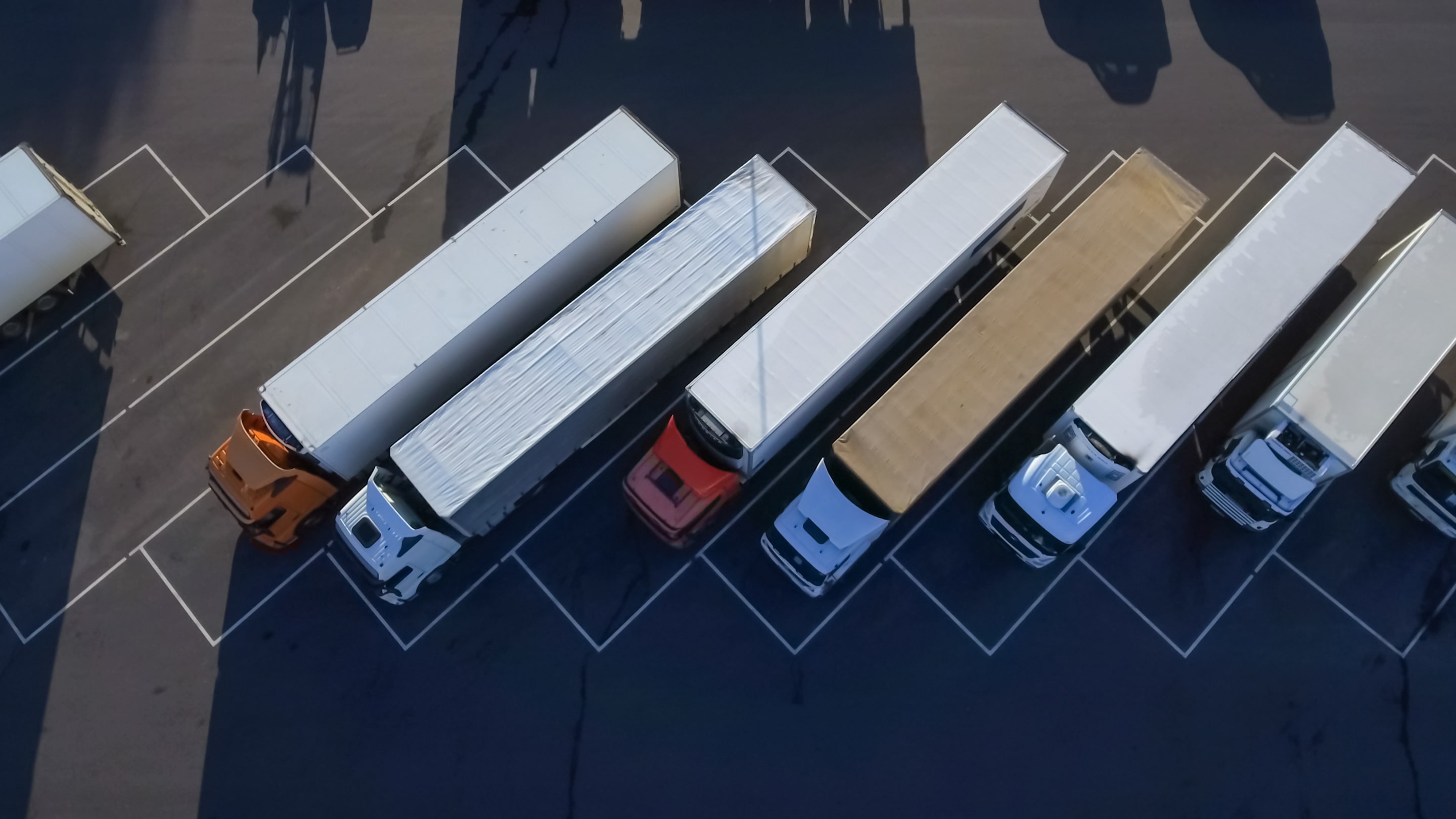
Guest
Affrontare la carenza di autisti di mezzi pesanti nel Regno Unito nel 2024/2025
Creato: 16/08/2024
•
Aggiornato: 10/10/2024
La carenza di autisti di mezzi pesanti nel Regno Unito è stata una sfida complessa e sfaccettata, con implicazioni di vasta portata per l'economia e le catene di approvvigionamento del Paese. Tuttavia, gli sforzi concertati del governo, dell'industria e delle parti interessate hanno iniziato a dare risultati positivi, suggerendo che la situazione sta cambiando.
Mentre il Regno Unito guarda al 2024 e al 2025, l'impegno costante nell'affrontare la carenza di autisti, unito all'attenzione per attrarre e trattenere persone di talento, sarà fondamentale per garantire la resilienza e la prosperità a lungo termine del settore dei trasporti.
La profondità della crisi
La carenza di autisti di mezzi pesanti nel Regno Unito è stata una preoccupazione crescente e la situazione ha raggiunto un punto critico nel 2021. Secondo i rapporti del settore, al culmine della crisi il Paese ha dovuto far fronte a una carenza di circa 100.000 autisti di mezzi pesanti. Questa cifra rappresenta un aumento significativo rispetto alla carenza di 59.000 autisti registrata nel 2019, sottolineando il rapido deterioramento della situazione.
I fattori che hanno contribuito a questa carenza sono stati molteplici, tra cui l'impatto della pandemia COVID-19, le conseguenze della Brexit e le modifiche alle norme fiscali IR35 che hanno interessato gli autisti di mezzi pesanti impiegati dalle agenzie su base contrattuale. Queste interruzioni hanno portato all'abbandono del settore da parte di molti autisti esperti, mentre l'ingresso sul mercato di nuovi talenti non è stato sufficiente a colmare il vuoto.

Intervento del governo e sforzi dell'industria
Riconoscendo la gravità della situazione, il governo britannico e le parti interessate del settore hanno adottato misure decisive per affrontare la carenza di autisti di mezzi pesanti. Il Dipartimento dei Trasporti ha registrato un notevole miglioramento, con la percentuale di posti vacanti di autista di mezzi pesanti segnalati dalle imprese di autotrasporto che è scesa dal 43% del quarto trimestre 2021 al 23% del terzo trimestre 2023.
Una delle misure chiave attuate è stata l'aumento dei fondi per attrarre e formare nuovi autisti di mezzi pesanti. Il governo ha anche accelerato il processo di ottenimento delle licenze per autisti di mezzi pesanti e ha investito 8 milioni di sterline per migliorare la qualità delle aree di sosta dei mezzi pesanti, affrontando l'annosa questione delle cattive condizioni di lavoro per gli autisti.
SNAP ha aiutato diversi autoparchi del Regno Unito a presentare domande di finanziamento governativo per migliorare le loro strutture. Per saperne di più sui parchi per autocarri inclusi nella rete SNAP.
Affrontare l'invecchiamento della forza lavoro e attrarre giovani talenti
Una delle sfide persistenti nel settore degli autisti di mezzi pesanti è l'invecchiamento della forza lavoro, con un'età media di 48 anni. Il settore ha faticato ad attrarre giovani talenti, poiché la percezione di condizioni di lavoro scadenti, salari medi e un percorso di carriera poco stimolante ha dissuaso molti dal prendere in considerazione la carriera di autista di camion.
Per far fronte a questa situazione, il governo ha recentemente avviato una consultazione per abbassare l'età minima richiesta per i conducenti di autobus e pullman, aprendo potenzialmente maggiori opportunità di ingresso nel settore dei trasporti per i più giovani. Questa iniziativa, unita agli sforzi per migliorare le strutture e le condizioni di lavoro dei conducenti, potrebbe contribuire a rendere il settore più attraente per la prossima generazione di lavoratori.
Si veda la mappa dei parcheggi per camion, delle stazioni di lavaggio e delle strutture ricettive in varie regioni coperte dalla rete SNAP.

Superare gli ostacoli normativi e adottare la flessibilità
Un altro fattore che contribuisce alla carenza di autisti di mezzi pesanti sono gli ostacoli normativi e burocratici che i nuovi autisti devono affrontare quando entrano nel settore. Il processo di ottenimento delle licenze e delle certificazioni necessarie può essere lungo e costoso, scoraggiando i potenziali candidati.
Per ovviare a questo problema, gli operatori del settore hanno chiesto procedure di formazione e di esame più flessibili, simili all'approccio adottato dalle compagnie di autobus. Semplificando il processo e rendendolo più accessibile, si spera di aumentare il numero di conducenti qualificati che entrano nel mercato.
L'impatto della Brexit e della COVID-19
La carenza di autisti di mezzi pesanti nel Regno Unito è stata ulteriormente complicata dalle conseguenze della Brexit e dalle interruzioni causate dalla pandemia COVID-19. La perdita di autisti dell'UE, che in precedenza costituivano una parte significativa della forza lavoro del Regno Unito, ha rappresentato un duro colpo. La perdita di autisti dell'UE, che in precedenza costituivano una parte significativa della forza lavoro del Regno Unito nel settore della guida di autocarri, è stata un duro colpo.
Inoltre, l'impatto della pandemia sulla formazione e sui test ha determinato un arretrato di nuovi autisti che entrano nel mercato. Con la ripresa dell'economia, l'aumento della domanda di beni e servizi ha messo ancora più a dura prova il già teso settore dei trasporti.

Collaborazione e innovazione
Affrontare il problema della carenza di autisti di mezzi pesanti richiederà uno sforzo di collaborazione tra il governo, gli operatori del settore e gli istituti di formazione. Lavorando insieme, si possono sviluppare soluzioni complete che affrontino le cause del problema e creino un sistema di trasporto più sostenibile e resiliente.
Anche l'adozione di approcci innovativi, come l'uso della tecnologia per ottimizzare la logistica e migliorare l'efficienza degli autisti, può svolgere un ruolo cruciale nel mitigare l'impatto della carenza di autisti. Gli investimenti in infrastrutture, programmi di formazione e iniziative incentrate sui conducenti possono contribuire a creare una forza lavoro più forte, più diversificata e più resistente.
La strada da percorrere
Mentre il Regno Unito naviga nel panorama in evoluzione della carenza di autisti di mezzi pesanti, è chiaro che la soluzione richiederà un approccio multiforme. Il continuo sostegno del governo, la collaborazione dell'industria e l'impegno ad attrarre e mantenere autisti di talento saranno essenziali per garantire la resilienza della rete di trasporto nazionale.
Anche se la crisi potrebbe non essere completamente risolta nell'immediato futuro, i passi compiuti finora offrono un barlume di speranza. Mantenendo l'attenzione sull'innovazione, la flessibilità e l'inclusione, il Regno Unito può lavorare per un futuro in cui il settore dei trasporti sia in grado di soddisfare le crescenti richieste dell'economia e le esigenze dei cittadini.


